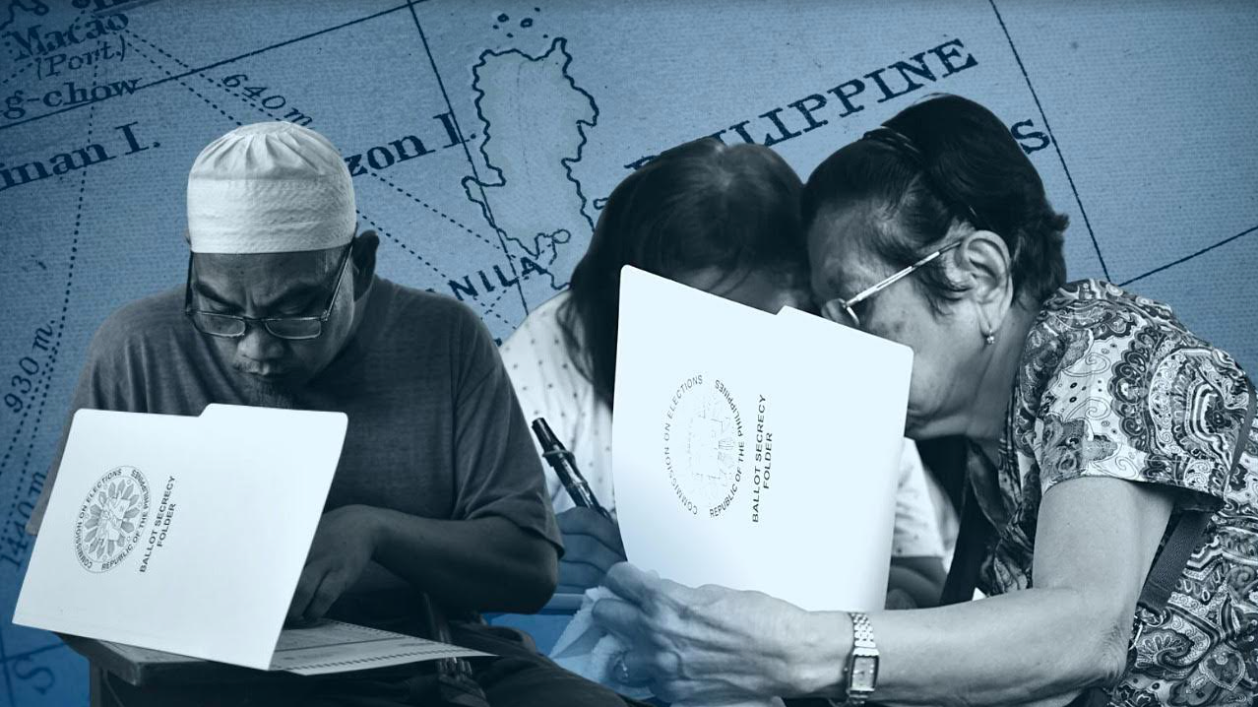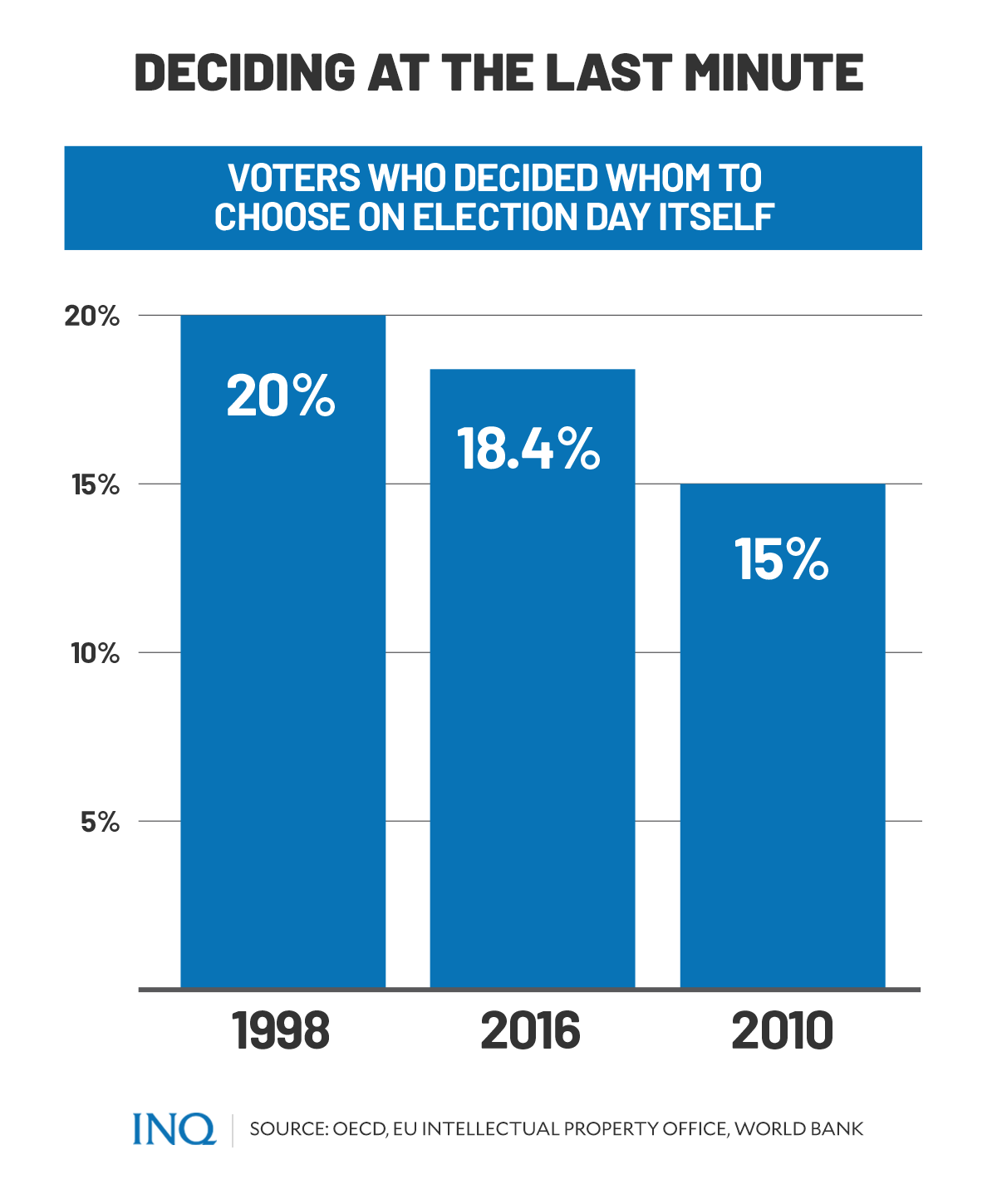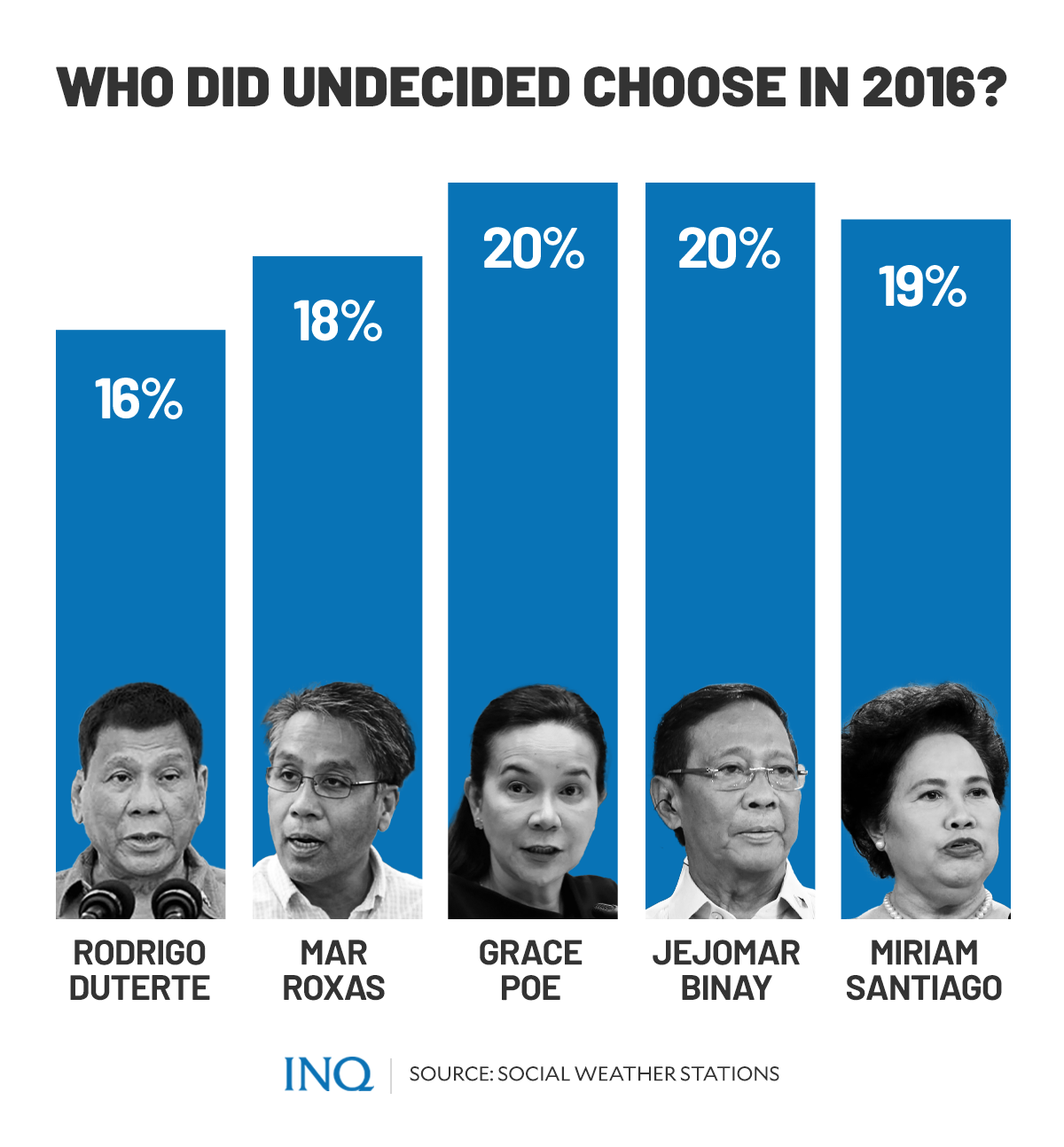Late-deciding voters: Knowing more about those who could ‘turn the tide’

IMAGE: Daniella Marie Agacer
MANILA, Philippines—Ten days until the election, while thousands of Filipinos already made known their choices for president on May 9, there are still many who have yet to decide.
Last Tuesday (April 26), Jean Franco, a political science professor of the University of the Philippines (UP), said that in 2016, 45 percent of voters decided who to vote for president only in April and May and even waited until the day of the election.
She said this as Antonio Contreras, a political science professor of the De La Salle University (DLSU), told CNN Philippines that the latest endorsements for Vice President Leni Robredo, like the Moro Islamic Liberation Front’s, came “too late”.
READ: ‘Historic’ MILF endorsement of Robredo ‘a vote for peace’ in Mindanao – Hataman
But Franco pointed to what could be a scientific measurement of undecided voters’ impact—the Social Weather Stations’ (SWS) exit poll in 2016 revealed that 18 percent of voters decided only on the day of the election while 15 percent and 12 percent decided only in May and April. The late decision-makers made up 45 percent of voters.
The 45 percent was only one percent less than the 46 percent who already had a decision as early as February that year. Likewise, there was eight percent who decided on who to vote for president only in March.
Article continues after this advertisementSWS president Mahar Mangahas said in an INQUIRER column in 2016 that “taking time to decide is a characteristic of the voters,” saying that voters had decided a little later in 2016.
Article continues after this advertisementREAD: Revelations of the TV5-SWS Exit Poll
Hard time
While it is hard to believe, Gerardo Eusebio, a DLSU political science professor, said there are really a lot of people who vote this way. “Some have a hard time deciding who to vote for because it’s just in their nature in doing so.”

GRAPHIC: Ed Lustan
The 2016 election was not the first instance that there were people who made their decision finalized only on the day of the election because many want to “weigh things very well,” Eusebio told INQUIRER.net.
It was in 2010 when the SWS and TV5 said that 15 percent of voters decided who to vote for president only on the day of the election while 51 percent already had their decision as early as February that year.
This was likewise the case in 1998, when Joseph Estrada was elected to the presidency, as the SWS and ABS-CBN revealed that one in five voters—or 20 percent—decided only on the day of the election.
Franco told INQUIRER.net that there were people who really vote this way because first, they might be waiting for some significant information regarding a candidate.
She said it is likewise possible that these people might “not be very political” that at the last minute, they will just decide to consult with relatives or friends on who to vote for: “When they are there already, that will be the time they will decide.”
Who’s liable?
Franco said this is one of the consequences of weak political parties, saying that education should be continuous: “When there are no elections, they should still educate people so it will be easy to decide early.”
The problem, Franco said, is that since political information is only highlighted when there is an election, “people are already kind of cynical while some are kind of busy or apolitical to even think of who to vote for.”

GRAPHIC: Ed Lustan
Maria Ela Atienza, a UP political science professor, likewise said that this kind of voting exists because “we have weak political parties and there is too much focus on personalities rather than track records and programs”.
“Electoral and party system laws do not pressure parties and candidates to have clear programs, there is no punishment for turncoats, and the Commission on Elections (Comelec) does not compel all candidates to participate in debates,” she said.
Atienza told INQUIRER.net that only few are identifying themselves with political parties since the latter do not actively recruit members from the grassroots and various sectors.
“Add to this, in a population with large numbers living in poverty, they are more concerned with day-to-day concerns rather than participating actively in political processes and deliberations,” she said.
SWS said last March that in December 2021, 43 percent or 10.7 million families rated themselves poor, slightly lower than the 45 percent or 11.4 million in September 2021.
READ: 132 poverty surveys in 40 years
Great chance
Atienza said the 45 percent who decided late in 2016 indicates that a lot of Filipinos can still be influenced in the last few weeks of the campaign which the Commission on Elections said will end on May 7.
READ: COVID redraws rules of campaign for 2022 elections
She said this gives candidates and political parties a chance to make changes in reaching out to and convincing more voters.
READ: The 2022 poll campaign: Promises, common candidates

GRAPHIC: Ed Lustan
Mangahas said in 2016 that the “delay” in decision-making was not unique to any of the candidates since it affected them all.
He said it was the pattern seen in 20 percent of Sen. Grace Poe voters; 20 percent of then Vice President Jejomar Binay voters; 19 percent of then Sen. Miriam Defensor-Santiago voters; 18 percent of then Interior Secretary Mar Roxas voters, who all decided only on Election Day.
Rodrigo Duterte, who was elected to the presidency in 2016 with 16,601,997 votes, likewise had voters who decided to vote for him only on May 9, 2016—16 percent.
In the last two surveys of SWS, which were held on April 18 to 20 and May 1 to 3 that year, Duterte, who already took the lead from Poe and Binay, had 33 percent, way higher than Poe’s 24 and 22 percent.
However, it was on May 3, 2016 when Poe was named as the “best presidential candidate” to address these concerns, as indicated in the Bilang Pilipino SWS Panel Mobile Surveys:
- Lowering price commodities
- Increasing wage of workers
- Health for all
- Education for the poor
- Food for the poor
- Cleanliness in the environment
- Disaster
Duterte was said to be the “best presidential candidate” to fight corruption, fight crimes, defend sovereignty and work on peace in Mindanao.
The two, the SWS said, were the most cited as the “best presidential candidate to address the traffic problem.”
RELATED STORY: The race is on, campaign season for national posts kicks off
Not yet late
At 45 percent in 2016, the number of undecided voters and those who only decide on the day or days before the election was “sizeable,” Atienza stressed.

GRAPHIC: Ed Lustan
“Remember that the Philippines has a first-past-the-post system. A candidate does not need majority votes. A national candidate can win over the second highest candidate with just more than thousands of votes,” she said.
When the SWS survey was conducted in 2016, Pulse Asia results indicated that from April 5 to 10 and April 26 to 29 that year, two percent and one percent of respondents had not yet decided on who to vote for president.
In its latest survey , which was conducted on March 17 to 21, 2022, Pulse Asia said one percent of respondents still has no decision.
Eusebio stressed that if there are still a lot of people who have not yet decided on who to vote for president, this is a “substantial number that can easily move to the opposite side that can turn the tide.”